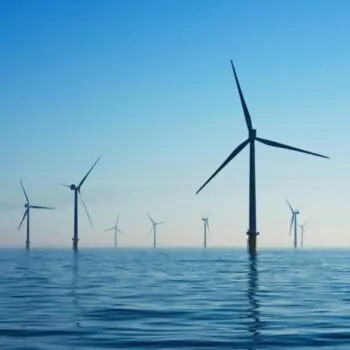Renewing confidence in multilateral collaboration will need more than warm words; lack of action on COVID-19 will also undermine the fight against climate change.
This year, 2021, should be the super year for climate. The United States is supposed to be back, with the UK complementing the Biden administration’s domestic programme on building back better. At the same time, the UK and Italy are respectively leading the G7 and G20 whilst jointly chairing the COP26. China is hosting the UN Biodiversity Conference. But COVID-19, and the inadequate international response, is undermining this potential.
The pandemic and its accompanying fallout are unprecedented in modern times and massively disruptive across global economies. Further, it was not anticipated that the crisis was going to come in waves, as shown by new COVID-19 variants driving ongoing uncertainty and renewed border closures. This crisis is certainly unique, but it also hit at a time when the global economic system was ill-prepared after a long period of low global interest rates, with high inequality and weak productivity growth.
The global responses have been reactive, with limited input from recipients of support and framed as a philanthropic endeavour rather than as acts of mutual self-help. This framing explains each response’s limited ambition and short-sighted nature. It does not recognise the nature or severity of the crisis and assumes that the global economy can return to business as usual.
There have been limited positive steps, such as the unprecedented scale of the International Monetary Fund’s Special Drawing Rights (SDR) issuance, the decision to bring forward International Development Association (IDA) replenishment by the World Bank and mutualising some debt in the European Union. While these help, they risk being limited interventions in an economic system that is really struggling.
The action, or lack of it, from leaders of the G7 and G20 is central to this. They have not deployed enough firepower to address the crisis, let alone to begin to address the pre-existing structural challenges faced by the global economy.
Vaccines have not been rolled out fast enough, and there is insufficient money on the table to support developing countries. This is reducing the capacity at the national level to contain the health crisis, already causing fragility in large middle-income economies. This threatens to undermine a lasting global recovery.
Limited recovery
The scars of the crisis are not confined to economic damage. It has also fundamentally undermined trust in the multilateral system. Cooperation could become merely transactional. This imperils the possibility of building foundations for restoring prosperity in a decade where action on climate urgently needs to take place.
From a developing country perspective, the currency of multilateralism is not rhetoric but financial firepower over the short and medium term. To date, the measures deployed do not add up to sufficient financial firepower to prove convincing.
Limited resources for a global recovery have left climate advocates struggling to avoid a zero-sum equation with other calls on public finance such as vaccination or education. At the same time, the underlying system architecture of the global economy has been shown to be vulnerable and unresponsive.
The G7 and G20 Finance Ministers’ communiqué underlined this: although progress has been made on climate, there is still a disconnect between the scale of action needed and the incremental approach that has been taken to date. This makes it harder to reach the goals of the Paris Agreement and sets the global economy on an unsustainable path.
In sum, the right discussions are not yet taking place; the revival of multilateralism has yet to drive recognition of the need for mutual self-help. This must change to avoid 2021 proving to be a year of failure.
Next steps
Although to date outcomes from the G7 and G20 dialogue have been disappointing, there is still time to act. Reshaping the debate to reset the system and deliver a long-lasting recovery would mean moving from a sectoral to a system-wide discussion; from a country-by-country rescue to a global perspective.
A short-term view of the recovery will not address wider issues such as how to deal with uncertainty emerging from the known unknowns of the energy transition and climate crisis.
The G20 Finance Ministers meeting in October is the last chance to reframe the narrative away from limited philanthropic efforts towards mutual self-help, represented by both a significant increase in available resources and recognition of the need for system-wide reform.
As a minimum, this should include meaningful increases in fiscal space for developing countries, including:
- A swift reallocation of SDRs, with the speed and efficiency of the reallocation mechanism prioritised over haggling about precise amounts. This is a one-off exercise—reallocation of SDRs alone will be insufficient in the medium term. The IMF is not the right institution for financing a long-term recovery.
- A major recapitalisation of Multilateral Development Banks (MDBs), as these are the key institutions for bridging from short-term recovery to longer-term rebuilding. Tinkering around the edges by changing capital adequacy rules, however welcome, will be woefully inadequate; it places responsibility on the staff of MDBs, rather than on the shareholders—particularly those from developed countries.
- A reframing of debt sustainability to allow for spending on resilience. The benefits of shifting to a sustainable, green and resilient pathway need to be captured today if private and public sectors are to reap the benefit of the transition.
The COP26 negotiations have been rightly characterised as an event in which the outcome will be defined by the progress each country makes on climate ambition. However, the climate ambition of developing countries will be shaped by their perception of support from, and renewed trust in, the commitment to multilateralism shown by developed economies.
The window to successfully put the world onto a more sustainable, resilient and inclusive pathway is closing. The ingredients for a successful 2021 are still there, but the limited crisis response is likely to make climate action unpalatable to developing economies.
This article was originally published by Foresight Climate & Energy.



